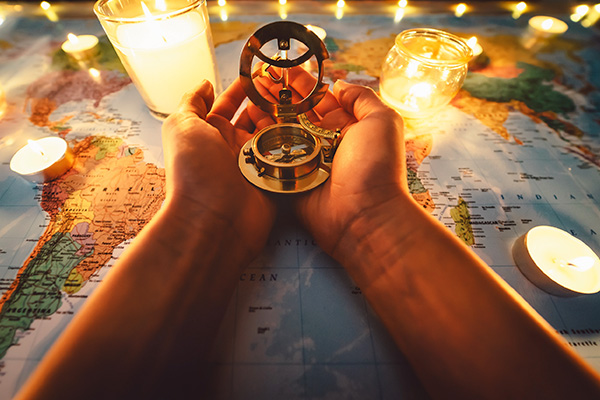self-awareness
How To Be Mindful On The Go!
 To some individuals, being mindful while on the go might seem a contradiction in itself. However, the truth of the matter is that there are a plethora of ways to cultivate the art of mindfulness that do not involve simply sitting still.
To some individuals, being mindful while on the go might seem a contradiction in itself. However, the truth of the matter is that there are a plethora of ways to cultivate the art of mindfulness that do not involve simply sitting still.
People turn to mindfulness for many reasons. For example, they may have a medical condition that needs managing, work issues that require resolving, or just simply want to feel more present in their everyday lives.
With the pace of modern life, it is clear to see why people become easily distracted and lead somewhat complicated lives as a result – all of which can be both emotionally and physically draining.
Whatever the reasons may be as to why a person turns to mindfulness, it should, indeed, help them to create a more balanced lifestyle.
That said, mindfulness should not be seen as a magical cure-all, but more an efficient way of relating to personal issues differently.
Interestingly, research has revealed that physiological changes do actually take place within an individual practicing mindfulness meditation. Such changes occur within the brain and some people experience better blood pressure and an enhanced immune system.
The above said, even those among us who practice mindfulness faithfully, can find it somewhat challenging to take what we have learned and incorporate it into our everyday lives. Instead, we tend to allow ourselves to be distracted and develop automatic behavior patterns instead.
The Difference Between Emotion And Intuition
 Clients sometimes tell me during psychic readings, “I just have this gut feeling,” or “I don’t know, but something about this seems off.” I love when people say things like this. It means they are noticing the whispers of their inner guidance system. They may not yet have the confidence to fully trust it, but they’ve taken the first step to becoming more aware of whispers of their highers self, asking to be heard.
Clients sometimes tell me during psychic readings, “I just have this gut feeling,” or “I don’t know, but something about this seems off.” I love when people say things like this. It means they are noticing the whispers of their inner guidance system. They may not yet have the confidence to fully trust it, but they’ve taken the first step to becoming more aware of whispers of their highers self, asking to be heard.
The challenge comes when we try to sort out whether that “feeling” we have is an actual intuitive nudge or just an emotion bubbling up from our human experience. From a spiritual perspective, emotions and intuitions are not the same thing. Both are important, but they function very differently.
When you can tell them apart, you can make decisions with greater clarity, avoid unnecessary drama, and walk more confidently along your spiritual path.
Emotions and intuitions may seem similar because they both arise within us without a clear explanation. However, emotions are usually connected to our human reactions. They can be triggered by what’s happening around us, our personal beliefs, or our physical state. As any expert drama queen can confirm, they can sometimes be big, loud, colorful, and full of urgency!
Intuition, on the other hand, is usually quiet, calm, and strangely neutral. Even the most powerful intuitive messages can be completely free of emotion. They carry a simple clarity that doesn’t shout or demand, but simply is. In fact, these emotion-free intuitive hits are often the most accurate and meaningful, because they’re not wrapped up in temporary moods and personal biases.
The Miracle Gift Of Spiritual Healing
 I discovered that I had the spiritual gift of healing many years ago when I went to visit my father in the hospital. He was in great pain and something told me to gently touch the knee he had just had surgery on. It was not my intention to accomplish anything, just to comfort him. But then I saw his expression change from agonizing pain to instant relief. That to me was a miracle!
I discovered that I had the spiritual gift of healing many years ago when I went to visit my father in the hospital. He was in great pain and something told me to gently touch the knee he had just had surgery on. It was not my intention to accomplish anything, just to comfort him. But then I saw his expression change from agonizing pain to instant relief. That to me was a miracle!
The next great healing miracle happened when one of my twin daughters was ice skating when she was about 8 years old. I was watching the children enjoy the beautiful winter day when my daughter suddenly slipped and fell. I will never forget her painful scream. I knew immediately that this was really bad! By the time I got to her, others were helping her, but she would not stop screaming. Hearing her in such pain shot through my heart like a bullet.
When I got to her, I immediately saw the bone protruding through her skin. I put my hands over the fracture on her forearm and said, “It’s okay, it’s okay. Immediately she stopped crying and said, “Mommy, it doesn’t hurt anymore. I was stunned and so was everyone else.
I held her arm all the way to the hospital, and when we got there, they made me remove my hands. Again I had to listen to my daughter scream in pain and I felt helpless.
After they immobilized her arm, they let me see her. I touched the cast on her arm and immediately felt that it was not properly applied. Of course, they refused to listen to me at first, but I kept insisting that something was wrong. Finally, they agreed to take a second x-ray, which showed that my daughter’s arm was indeed not in the correct position. So she had to have it done again. One of the nurses asked me how I knew. I never answered.
A Step-By-Step Guide To Manifesting True, Lasting Love
 Have you been asking yourself: Does he love me? Is he into me, like I am into him? Where is my life partner, my soulmate? Is my person ever going to come into my life?
Have you been asking yourself: Does he love me? Is he into me, like I am into him? Where is my life partner, my soulmate? Is my person ever going to come into my life?
We all want that amazing, healthy relationship where we feel desired, respected, appreciated, and deeply connected. There’s nothing wrong with wanting a love that feels like it was written in the stars.
But many people don’t really know how to get there. If you’re feeling a bit lost about where to start, or confused about why love hasn’t shown up for you yet, you’re not the only one.
No matter how down you might feel, your desire for deep, lasting love is very much possible.
One of the first steps is to stop doubting your own value. Feeling unworthy is one of the main reasons many people do not meet their person.
You’re totally worthy of the kind of relationship you’re after. Yes, you! And it can start right now.
Sometimes the underlying issue is subtle, like a limiting belief, an old emotional wound, or a vibrational mismatch between what you want and what you’re actually putting out there. Other times, it’s just that you haven’t quite tapped into your manifesting power yet.
Here’s the thing: love isn’t something you chase. It’s something you align with. Everything you think, feel, and do contributes to how you see your world. True love wants to find you. You just need to meet it halfway. It all starts with self-awareness, a mindset shift, and the courage to heal what’s been holding you back.
How She Found Her Way Back
 Not every psychic reading begins in light. Some start in silence — the kind that weighs heavy in the heart.
Not every psychic reading begins in light. Some start in silence — the kind that weighs heavy in the heart.
When she first reached out to me, her question was brief, but the energy spoke volumes. There was pain behind her words, and she barely dared to ask: “Am I still in here somewhere?”
She had been in a relationship that, at first, felt exciting—perhaps even fated. “He swept me off my feet,” she once said. “I thought he saw me.”
And maybe he did, in the beginning — just enough to mirror back what she most longed to believe about herself. That she was worthy. That she was seen. That she was loved. But what unfolded was far from love.
The charm that once made her feel chosen gradually twisted into control, criticism, and a subtle erosion of her spirit. What looked like affection became possessiveness. What felt like closeness became confinement.
She had once been a vibrant, creative soul bursting with ideas and dreams.
But as time passed, she began to disappear. “I used to feel like a magical flame,” she confessed. “Now, I’m no more than a tiny heap of ashes under his tyranny.” Her sparkle had dulled. Her job unraveled. Her friendships faded.
But then she called me on Psychic Access and the runes reminded her that the embers of her true self and soul essence were still burning.
Everything You Need To Know About Soulmate Connections
 Who is my soulmate?” It’s a question I often hear during psychic readings. Clients want to know if their current partner is “the one,” or when their soulmate will arrive.
Who is my soulmate?” It’s a question I often hear during psychic readings. Clients want to know if their current partner is “the one,” or when their soulmate will arrive.
Some people start relationships convinced they’ve met their soulmate, only to watch their supposed “forever love” walk away with someone else. Puzzled, they contact me, asking, “How could this happen if two souls were meant to be together?”
Too many people are left heartbroken and confused when a well-meaning relative or friend, or a misguided psychic lacking spiritual integrity, encourages or assures them that this person is definitely “the one.”
Wrongly believing that a love connection is fated can make the subsequent loss even more painful. Just because a connection feels intense or special doesn’t mean it’s destined to last forever. True soul connections serve a purpose, but that purpose isn’t always love, romance, or lifelong companionship.
Unscrupulous readers and people with poor judgment often misread situations and create false hope, causing lovestruck individuals to cling to relationships that were never meant to last—or even exist, for that matter.
So, what exactly is a soulmate? Spiritually speaking, a soulmate is someone with whom you share a profound pre-birth or past-life connection, or both. These people show up in our lives to help us evolve spiritually, often reestablishing old relationships for the purpose of healing and transformation.
